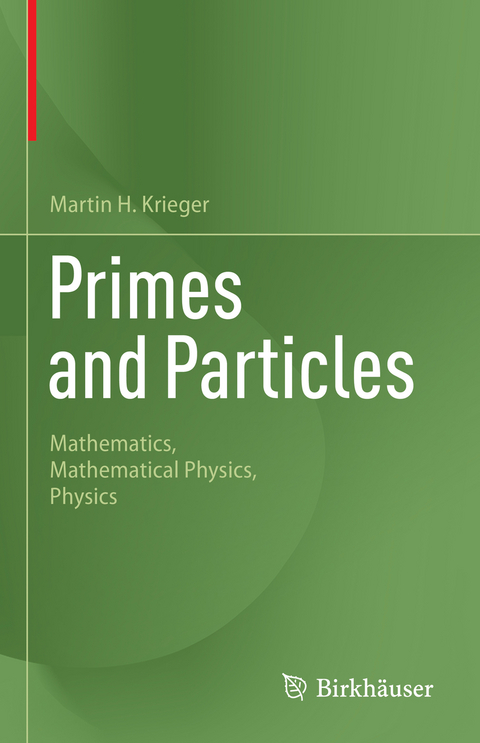
Primes and Particles
Springer International Publishing (Verlag)
978-3-031-49775-9 (ISBN)
lt;b>Martin H. Krieger was trained as an experimental physicist at Columbia University. He is a Fellow of the American Physical Society. Krieger has taught in policy and planning and management at the University of California (Berkeley), Minnesota (Twin-Cities), MIT, University of Southern California, and University of Michigan (Ann Arbor). He has been a fellow at the Center for Advanced Study in the Behavioral Sciences and the National Humanities Center. Krieger is professor emeritus at the University of Southern California. Primes and Particles is his twelfth book. His earlier books include Doing Physics (Indiana, 1992, 2012), Constitutions of Matter (Chicago, 1996), and Doing Mathematics (World Scientific, 2003, 2015).
- 1. Introduction. - 2. Why Mathematical Physics?. - 3. Learning from Newton. - 4. Primes and Particles. - 5. So Far and in Prospect. - 6. Creation: When Something Appears Out of Nothing. - 7. Packaging "Spectra" (as in Partition Functions and L/zeta-Functions) to Reveal Symmetries in Nature and in Numbers. - 8. Legerdemain in Mathematical Physics: Structure, "Tricks," and Lacunae in Derivations of the Partition Function of the Two-Dimensional Ising Model and in Proofs of The Stability of Matter. - 9. Mathematical Physics.
| Erscheinungsdatum | 28.02.2024 |
|---|---|
| Zusatzinfo | XVII, 102 p. 9 illus., 4 illus. in color. |
| Verlagsort | Cham |
| Sprache | englisch |
| Maße | 155 x 235 mm |
| Themenwelt | Geisteswissenschaften ► Philosophie |
| Mathematik / Informatik ► Mathematik | |
| Schlagworte | Ising Model • Langlands Model in the Realm of Physics • Mathematical Physics • Mathematics and Ontology • Physical Significance of Mathematical Structures • Stability of Matter |
| ISBN-10 | 3-031-49775-9 / 3031497759 |
| ISBN-13 | 978-3-031-49775-9 / 9783031497759 |
| Zustand | Neuware |
| Haben Sie eine Frage zum Produkt? |
aus dem Bereich


